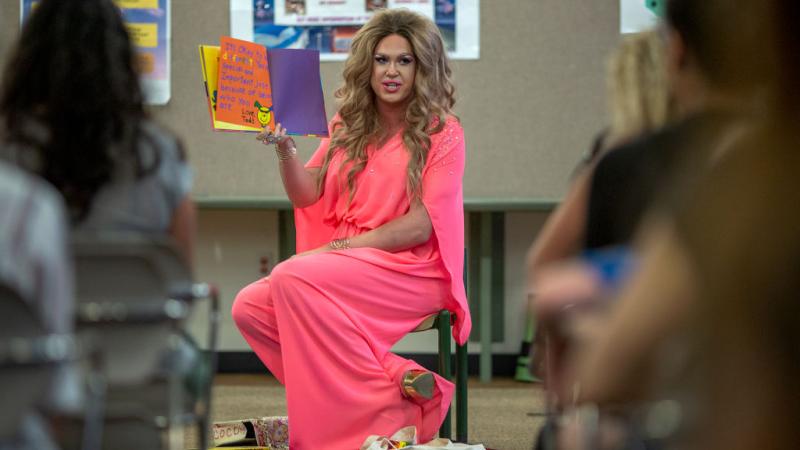Supreme Court strikes at heart of regulatory state with rulings on free speech, religion, education
Rulings for creative professionals and religious accommodations, and against EPA and Education Department, suggest politically convenient interpretations of statutory authority and constitutional rights will face heavy scrutiny.
The Supreme Court took square aim at the regulatory state this term, striking down perceived executive overreach in free speech, religious freedom, education and the economy and sending a warning that politically convenient interpretations of statutory authority and constitutional rights will face heavy scrutiny.
That included the Biden administration's unilateral cancelation of up to $400 billion in student loan debt and U.S. Postal Service's refusal to accommodate employees' religious beliefs if it causes any burden, both handed down this week.
Colorado and Oregon also suffered major defeats in their quest to compel creative professionals to affirm same-sex marriage under public accommodations laws.
A majority of justices Friday said Colorado could not force a Christian web designer to "celebrate and promote" such ceremonies. In light of that ruling, the court vacated Oregon's fines against a Christian couple for refusing to make a custom same-sex wedding cake, remanding their case to state court.
In a cross-ideological lineup of justices, the high court also overturned Colorado's conviction of a man for Facebook stalking because it didn't show he realized the messages could be construed as threatening, cementing the reputation of the court under Chief Justice John Roberts as a First Amendment bulwark regardless of viewpoint.
A month earlier, the Supreme Court barred the Environmental Protection Agency from regulating wetlands without a "continuous surface connection" to federally regulated waterways, a huge victory for property owners.
While President Biden ran on a promise to restore trust in American institutions, he has repeatedly attempted to erode trust in the high court for undermining his preferred policies.
"This is not a normal court," Biden told reporters at the White House on Thursday after it ruled racial preferences in higher education were at odds with equal protection under the Constitution.
He later expanded his thoughts to MSNBC that the conservative majority has "done more to unravel basic rights and basic decisions than any court in recent history."
Last term, the justices forecast their skepticism of federal agencies claiming wide new powers under their statutes by blocking the Occupational Health and Safety Administration's COVID-19 vaccine mandate for large employers.
While the Biden administration soon rescinded that rule rather than defend OSHA's mandate for 84 million workers as a legitimate "emergency temporary standard," the president barreled ahead with student loan forgiveness for up to 43 million borrowers on the theory that the COVID-19 pandemic relief law known as the HEROES Act gave the Education Department unlimited authority.
Roberts wrote for the 6-3 court that the administration went beyond "a few narrowly delineated situations specified by Congress" to expand debt forgiveness to "nearly every borrower in the country." The action violates the "major questions" doctrine by assuming broad regulatory authority from a vague congressional authorization, the opinion says.
The justices unanimously ruled employers could not infringe on employees' religious rights without showing an accommodation – in this case, a postal worker exempted from work on Sundays to observe the Sabbath – "could result in substantial increased costs in relation to the conduct of its particular business,” Justice Samuel Alito wrote.
First Amendment rights to speech pertaining to religion also got major boosts.
Colorado's public accommodations law – which applies to "almost every public-facing business in the state," can be enforced by either state officials or private citizens and carries "a variety of penalties" from training to fines – cannot supersede the constitutional right against compelled expression, the court ruled.
The "very purpose" of Colorado's law is "[e]liminating" viewpoints at odds with the state's, in this case opposition to same-sex marriage, the 6-3, reads the majority opinion by Justice Neil Gorsuch. He also said the state agrees with web designer Lorie Smith that the websites she creates with clients inherently "involve her speech … her own words and original artwork" in addition to their own.
"Taken seriously," the logic of Colorado's argument "would allow the government to force all manner of artists, speechwriters, and others whose services involve speech to speak what they do not believe on pain of penalty," going far beyond the "unexceptional" laws in about half the states prohibiting discrimination by sexual orientation, Gorsuch wrote.
The ruling means Oregon's Aaron and Melissa Klein might get out of fines entirely for refusal to make a same-sex wedding cake.
The state Bureau of Labor and Industries originally fined them $135,000 but reduced it to $30,000 after SCOTUS ordered a state court to re-evaluate the Kleins' lawsuit in light of its ruling against Colorado for anti-religious hostility against a fellow baker, Jack Phillips. The state court found the same anti-religious hostility against the Kleins but sent them back to the bureau anyway.
The Friday order list for SCOTUS shows the Kleins' case will return to the Oregon Court of Appeals for review under the high court's ruling for Smith in Colorado.
The Facts Inside Our Reporter's Notebook
Videos
Links
- Biden administration's unilateral cancelation
- U.S. Postal Service's refusal to accommodate
- force a Christian web designer
- vacated Oregon's fines against a Christian couple
- conviction of a man for Facebook stalking
- First Amendment bulwark regardless of viewpoint
- barred the Environmental Protection Agency
- "This is not a normal court," Biden told reporters
- ruled racial preferences in higher education were at odds
- blocking the Occupational Health and Safety Administration's COVID-19 vaccine mandate
- Biden administration soon rescinded that rule
- the administration went beyond "a few narrowly delineated situations
- Justice Samuel Alito wrote
- majority opinion by Justice Neil Gorsuch














